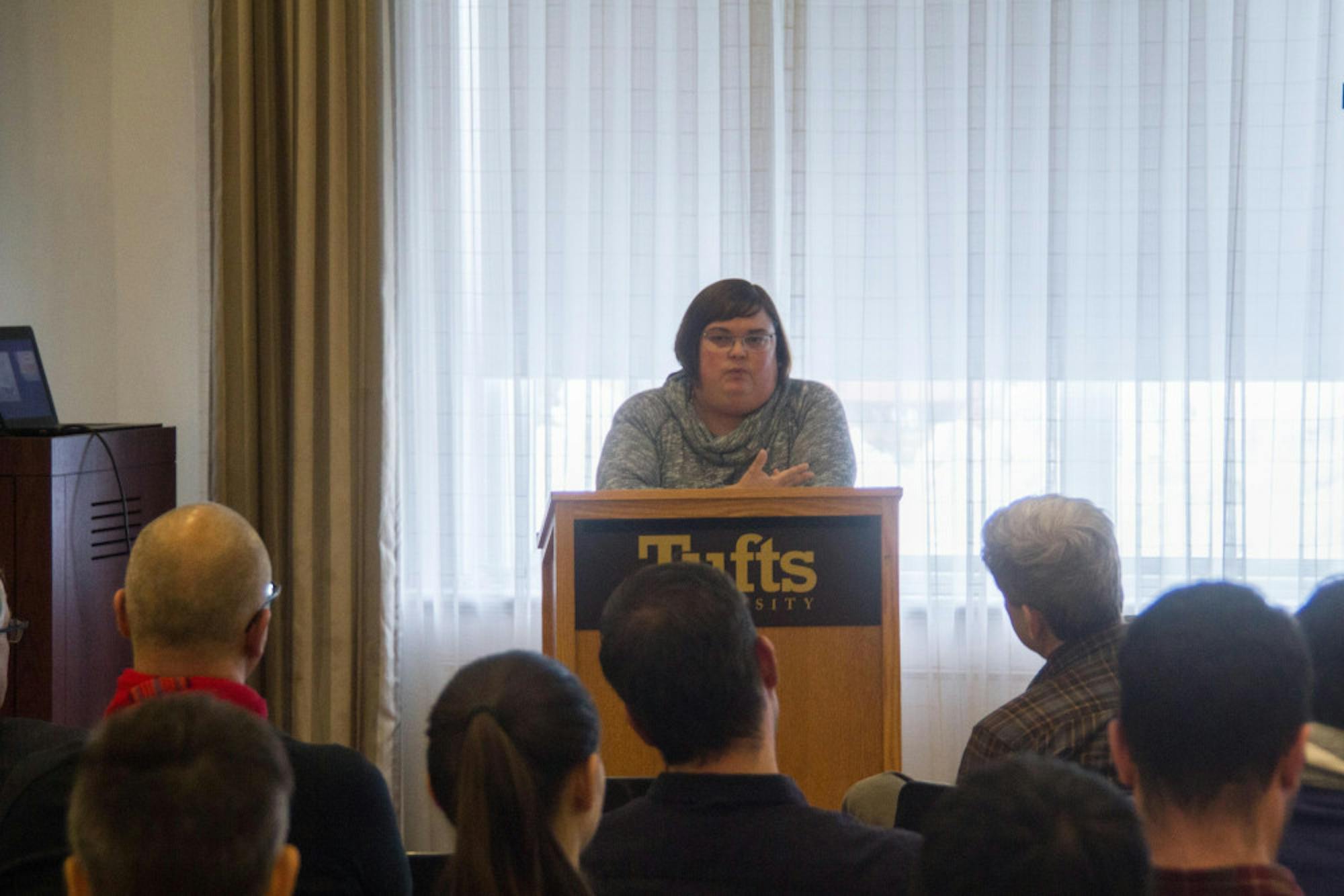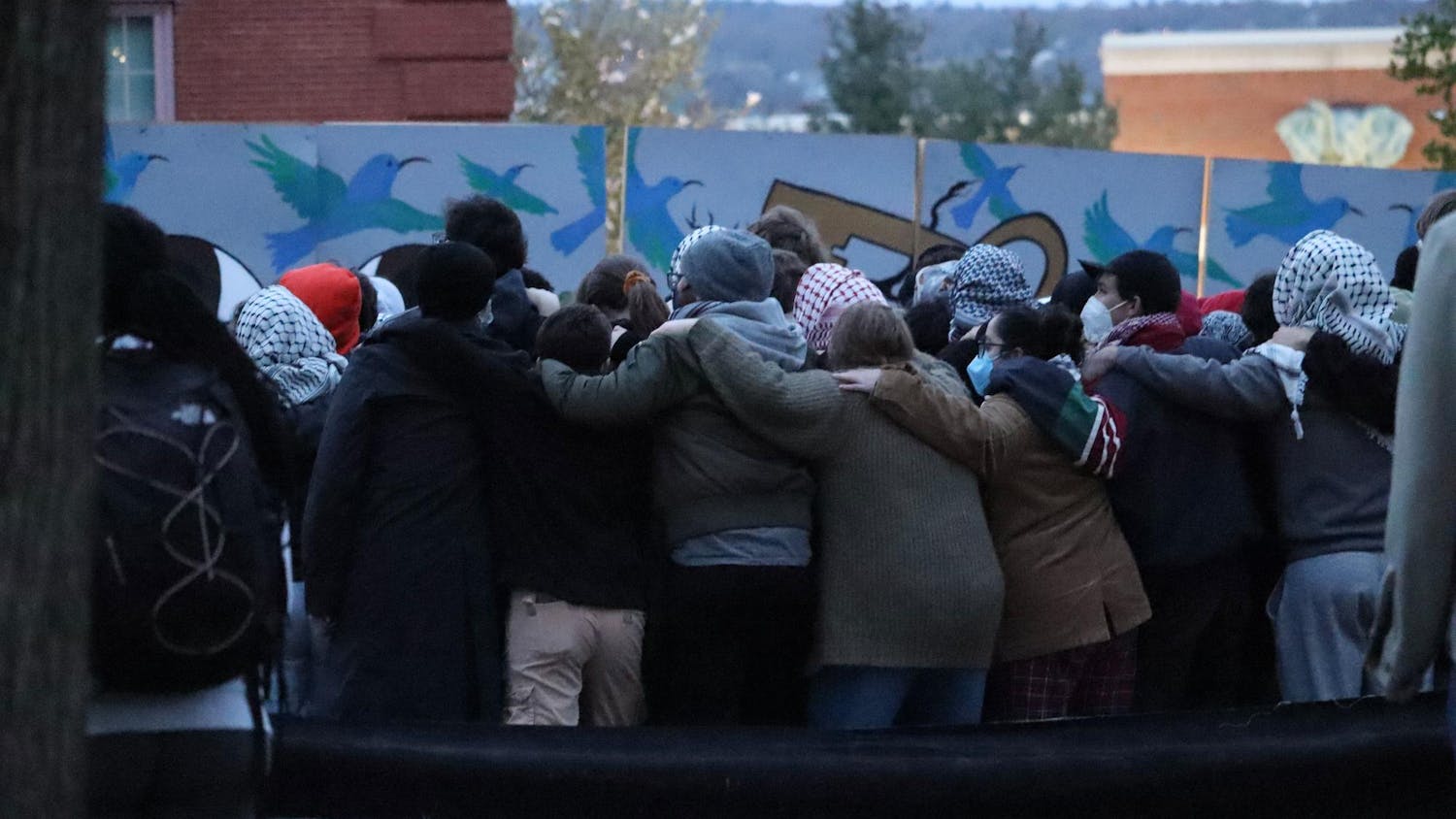Joan Donovan, a postdoctoral fellow at the Institute for Society and Genetics at the University of California, Los Angeles, delivered a lecture about the impact of DNA ancestry tests on the perspective of white supremacists yesterday afternoon in the Alumnae Lounge.
The lecture, titled "From One Drop to One Percent," was sponsored by the Science, Technology and Society Program, the Department of Anthropology, the Center for the Study of Race and Democracy and the Women's, Gender and Sexuality Studies Program.
Donovan began the lecture by explaining her research methods. Donovan said that her research team analyzed posts on internet message boards dedicated to white supremacy.
"We started this a year and a half ago, and since then, for about … 40 hours a week, I have been deeply embedded in white supremacist message board — reading posts and looking around," she said.
Donovan said that her research into white supremacy has long been relevant but is especially significant in today's political climate. One active message board that her team studied was initially formed in the 1990s.
"These people never really went away. White supremacy has been part of American life and American culture for a very long time," she said.
She also stressed that the white nationalist cause is distinct from other ethnicity-based movements.
"White nationalist identity politics do not strive for justice, equality, fairness and a recognition of meaningful differences, which are the hallmarks of contemporary identity movements," she said.
Addressing the topic of DNA ancestry testing, Donovan presented a specific example of Craig Cobb, a well-known white nationalist who was challenged to take a DNA test on a television talk show in 2013.
"Because he was a white supremacist, they challenged him to take a DNA ancestry test to prove his whiteness," she said. "And it came back that he's 14 percent Sub-Saharan African."
She then addressed that DNA testing is somewhat flawed due to low sampling of an individual's DNA.
"It's not uncommon for someone's results to come back being something that they don't think that they are, but at the same time it's not uncommon for things to come back as Sub-Saharan African if they used what are known as cheap tests, that don't test … a wide swath of your DNA," she said.
This margin of error allows people to either disregard the data or question its sources, and thus people seek out results that better conform to their expectations, according to Donovan. Results that prove whiteness, in turn, allow them to gain acceptance in the white nationalist community.
"Craig decided that even though he thought it was junk science, and that the show had given him a junk test, that he would go and get another ancestry test done, and … post these results to the message board," Donovan said. "It lists him as 100 percent European."
In addition, according to Donovan, researchers have identified flaws in DNA testing when collecting samples, which leads to a disparity in the information that is available for these tests on certain databases.
"There are issues with the way in which we stratify genetic science in health databases and crime databases," she said. "So in health databases, [the researchers wrote that] Latinx and Asian, African and Aboriginal are underrepresented, whereas Latinx and African American are overrepresented in crime databases."
White supremacy movements rely on a concrete definition of what it means to be white, according to Donovan, and these tests have provided an additional vehicle for them to define their movement.
She also explained that white supremacists interpret results that do not conform with their beliefs by concealing the information or redirecting attention away from it.
She concluded by putting the white nationalist movement into the context of President Donald Trump's campaign and administration.
"In our interpretation, Trump's campaign was responding to the white nationalist cause's call for isolation and protection from what they perceive to be internal and external threats to safety and the fracturing of whiteness," she said.
She also spoke about the threat posed by the American Health Care Act, which is the proposed Republican replacement of the Affordable Care Act. She said that it could reduce the privacy of genetic testing, enhancing white supremacist causes.
"Just like the one drop rule, these new policies … don't just harm black people. They also harm poor whites, and many marginalized others," she said.
UCLA researcher speaks about DNA testing as a tool for white supremacists

Medford/Somerville, MA - Joan Donovan speaks about the ways in which white supremacists use DNA testing at an event on Mar 15.





